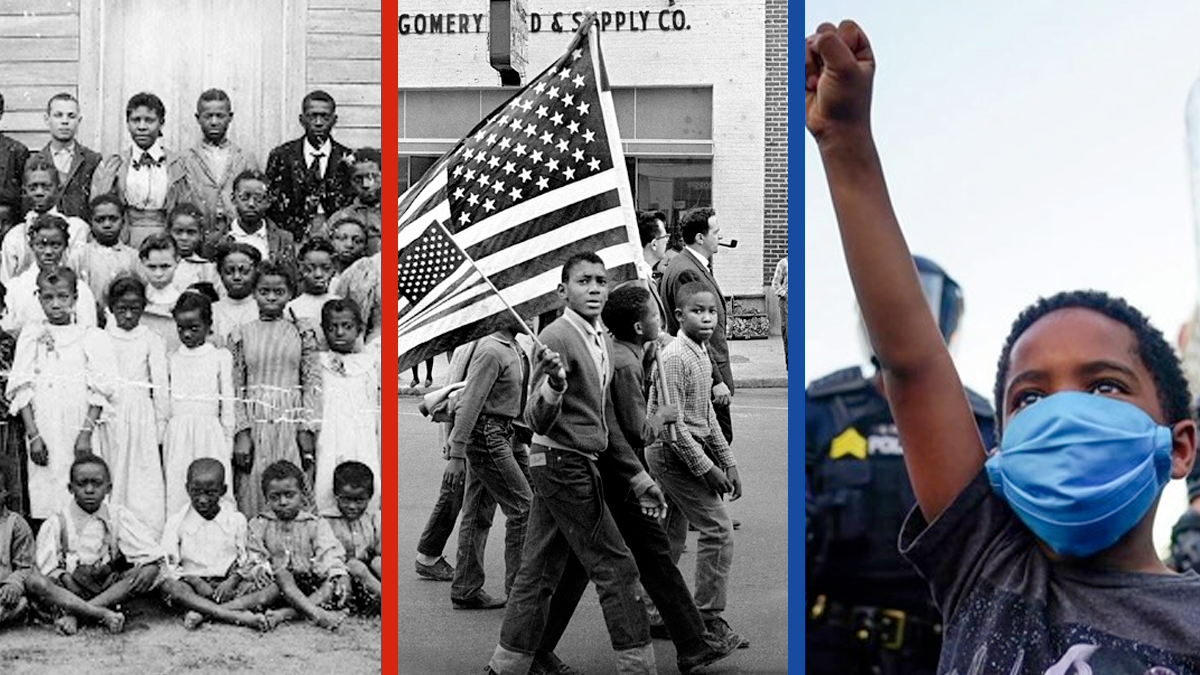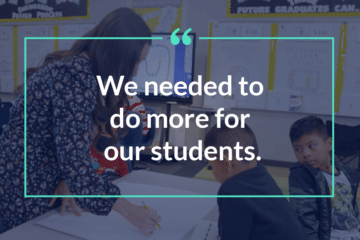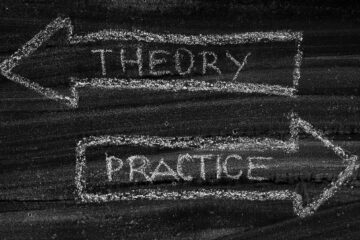Race in America 2020
 There were slaves from Africa in the American colonies in the early 1600s. When Thomas Jefferson wrote the Declaration of Independence, more than a hundred years later, with its simple, clear and inextinguishable phrase about all men being created equal, he owned slaves himself, kept one as his mistress, did not free her in his will—which he could have done—and left her nothing. For almost 400 years, we have lived this way, offering the world an inspiring image of liberty and opportunity and justice for all while at the same time holding our knee on the neck of the slaves and descendants of slaves who dared to aspire to the dream.
There were slaves from Africa in the American colonies in the early 1600s. When Thomas Jefferson wrote the Declaration of Independence, more than a hundred years later, with its simple, clear and inextinguishable phrase about all men being created equal, he owned slaves himself, kept one as his mistress, did not free her in his will—which he could have done—and left her nothing. For almost 400 years, we have lived this way, offering the world an inspiring image of liberty and opportunity and justice for all while at the same time holding our knee on the neck of the slaves and descendants of slaves who dared to aspire to the dream.
Until this moment, I thought I understood all that—how it had happened, what it meant and what we needed to do about it. I had carried with me a visceral image of traveling in the early 1960s by train from my native New England to Georgia and stopping in Virginia to see the separate restrooms and water fountains for “Negroes.” I’d read the history. I knew about slavery. I’d seen the pictures of Whites standing around laughing and celebrating at the lynchings and I’d read about all the betrayals of Reconstruction. But seeing those signs at the train stations made me, for the first time, imagine what it would be like to live in a world of humiliations, great and small, every single day.
I thought I understood. I was sure, for example, that slavery was a Southern evil, and that I, being from the North, was from the side the angels were on. It would be years before I learned that, after the Civil War, very few on the winning side, my beloved North, had any interest in having the freed slaves vote. Or even allowing them to stay in the United States. Many, maybe most, wanted them to be shipped back to Africa. Even then, and even in the North, which had won the war, all men had been created equal, but not Black Americans. White northerners were against slavery, but not for equality.
But surely, I thought in the 1960s, in the years of Bobby Kennedy and Lyndon Johnson, it was different. So, I was astounded at the violence in my city of Boston when the feds tried to enforce the school desegregation laws. It would be years before I learned that, after World War II, that same federal government had provided endless subsidies to American city dwellers to move out to the burgeoning suburbs, and they had gone, taking their middle-class jobs with them, leaving the rotting inner cities to the Black Americans who had moved to these cities in the Great Migration. Black people could not leave the cities because the government had quietly made it impossible for them to get mortgage loans to buy houses in the new suburbs.
It was with great pride in my country, though, that I saw the 60s and 70s unfold as civil rights laws were passed and enforcement mechanisms were put in place. Now, at last, I thought, in both the North and South, in the cities and the suburbs, we will do what we should have done long ago. I watched as the number of Black women and men in our universities grew, along with the numbers of Black legislators, professors, doctors, lawyers, office holders and business executives. I looked at all this and thought I understood. I knew what policies were needed and I knew how they ought to be implemented and it all seemed to be working.
But I didn’t understand very much at all. I actually understood almost nothing about what it means to be a Black person in our country today. George Floyd, in death, became a great teacher to so many, along with the now familiar list of other Black Americans who have recently died at the hands of police in our country. These Americans died simply because they were Black, because the police thought it was not their job to protect Black people but to protect the rest of us against Black people and because they were so sure they could get away with it, just as surely as the plantation foreman and the lyncher knew they could get away with rape, assault and murder. Our own police were getting weapons of war from the federal government to wage war on our own citizens.
Thank goodness for the cell phone. There is nothing new about what happened to George Floyd. What is new is not the act but the recording of the act, for all to see. Martin Luther King understood that this kind of violence had been going on forever. By baiting the southern police into doing it in front of TV cameras that could bring it to the nation, he changed everything. Let history record that it was modern technology that changed the equation on race.
What we know from books is engraved on our hearts differently when we can see and hear it. That’s what made the signs on the rest rooms and fountains so important in my life. It is, of course, true that all lives matter. What gives the words “Black Lives Matter” salience is the fact that, for so long, we have behaved as if everyone else’s lives mattered, but not theirs.
I must say that what has shaken me most over the last few weeks has been the testimony of friends, people I thought I knew, Black people I had viewed as having made it, professionals and senior managers who have gotten past all the gates erected in their way to the upper ranks of status in our society. My work in education made me intimately familiar with the enormous obstacles that Black children from low-income families still face, but it was the growth in the ranks of the professionals and executives that had made me think we had turned a corner, that the future would be much brighter than the past.
What is so stunning is the realization that even those who have “made it” in our society still live in fear, still have to counsel their children against doing things and going places and saying things that the rest of us simply never think about. For eloquent testimony on this point, see this statement from Peggy Brookins, president and CEO of the National Board for Professional Teaching Standards. Peggy is hardly the only Black professional I have heard this from. If such people do not feel at home in this country, if, despite all they have accomplished, they are still outside looking in and still afraid once outside their small circle of professional associates, then we have a very long way to go.
This time does feel different. Who ever imagined the day when NASCAR would ban the Confederate Flag? When the top brass of the American military would take on the President of the United States over issues of race in America? When states’ attorney generals are going to grand juries to take down out-of-control police with murder charges? When city governments are talking seriously about disbanding their police departments, giving big parts of their police budgets to other parts of city government that provide support and not threats to Black people and communities and reconstituting their police forces as public safety units with very different cultures? When the Congress is considering bills to strip police officers of the special protections they have from charges that they have misused their authority to commit crimes on ordinary citizens? These are steps in the right direction, but they are not the whole solution.
Peggy will not be able to drive our streets without fearing that she will be pulled over and roughed up by police just because she is Black until we change the culture of policing in America. We must address the injustices in our criminal justice system, and our health care system, housing policies, employment practices and on and on. But, as I see it, right now, more important than everything else is economic opportunity, real economic opportunity, access to the good jobs of the future.
Here’s why. We live in a world in which, now more than ever, jobs requiring only what we call the basic skills will be done by automated equipment, a process that is being speeded up by COVID-19. The first step on the job ladder, already out of reach for large numbers of young Black people, is disappearing, as will many other of the low rungs in the next few years. If young people of color have no real job opportunities, if the good jobs get further and further out of reach because they require a kind and quality of education and skills they cannot get, then all we are talking about is a dole and a measure of protection from more powerful forces in the society. We are talking about Blacks having to make do with whatever health care, housing and all the other things they need by those who have access to decent jobs and the income that comes with them.
If we cannot find a way to provide a far better education to Black youth all over the country, it is entirely possible that this remarkable moment will lead not to a fairer, more inclusive society, but to an uglier one, featuring growing, not declining, despair. And then the moment will be lost.
 We live in a country where your life chances are defined by your zip code, because your zip code tells you which schools your kids can go to and the quality of the schools determines your life chances to a degree that has never been greater than today. If we don’t greatly transform the education we provide to young Black Americans, we will not be able to build enough jails, enough public housing, enough social service centers, enough public transportation, enough food programs for the Black people who will need them when the machines take their jobs. Better policing is vitally necessary, but it won’t change that. Invest now or pay the price later. It will be a huge price.
We live in a country where your life chances are defined by your zip code, because your zip code tells you which schools your kids can go to and the quality of the schools determines your life chances to a degree that has never been greater than today. If we don’t greatly transform the education we provide to young Black Americans, we will not be able to build enough jails, enough public housing, enough social service centers, enough public transportation, enough food programs for the Black people who will need them when the machines take their jobs. Better policing is vitally necessary, but it won’t change that. Invest now or pay the price later. It will be a huge price.
It is not just money we are talking about here. It is really all about the structure of opportunity in our schools. The root of the evil is in our schools. That is not because our professional educators are evil. They are not. It is because the public education system in which they work and our children go to school does not work anymore.
How do we know that? Because there are a growing number of other countries where the entire student population is doing much better and the chance that a student from a low-income, minority or immigrant family can be among the best performers in the country is much greater. If this country really wants to right these four-century-old wrongs, we have to rethink a system that is funded based on property wealth, we have to find a way to get more great teachers to the kids who need them the most, we have to turn “No Child Left Behind” from a slogan into a policy, backed up by everything it takes to make sure that every student has whatever it takes to enter first grade ready for a first grade curriculum and is ready each year thereafter for the work that will get them to global standards by the time they leave high school. We have to find a way to hold our schools accountable for doing exactly that. Not only is that the education equivalent of a police that is there to protect Black people rather than to protect the rest of society from them, it is actually the key to a society that reflects justice and opportunity for people of color and their children in every corner of their lives.
None of this will be easy. Local control of schools has come in practice to mean a license for rich White people to gather together in their own publicly-funded private school districts to keep others out and enjoy first-rate schools at a low tax rate while others who have little money and often the wrong skin color pay a much higher tax rate for far less effective schooling, and schools much of whose funding goes to providing services like food and health care that wealthier school districts don’t have to provide. We have among us many who want poor Black and Latinx kids to have choices within the inner city and outer-ring working-class suburbs, but God forbid that such people will choose to send these kids to the schools in the wealthy suburbs where the rich White kids live. Our best teachers are offered the highest salaries and best working conditions by those wealthy suburbs, leaving other teachers to burn out in inner city and rural schools where the salaries are lower, the support thinner and the challenges much greater. We talk about No Child Left Behind, but the reality is that the system operates as a sorting system. Sorting systems are designed to leave children behind.
Expectations are highest for the wealthiest White kids and lowest for the poorest minority kids. And expectations are everything, because when these kids face low expectations, they are given an unchallenging curriculum, which means that they have no opportunity to learn what the other kids are learning. Starting out school with a limited vocabulary, they have a hard time following what is in the books and what the teacher is saying. Every year, there is more vocabulary they don’t understand, until they give up, act out, fake it, and drop out or, if they are lucky, graduate reading at a fourth-, fifth- or sixth-grade level. That has to stop. Now.
There is no silver bullet to make it stop. The system will have to be redesigned to make it stop. We know how to do that, because other nations have done it. We can follow their lead. If we dare. If we really care. We’ll see.
One more thing. This is about justice and righting 400-year-old wrongs. It is not a zero-sum game. I have nothing but contempt for White supremacists and rotten cops. But I have great empathy for poor White kids for whom expectations and resources are also low and who need good schools as badly as anyone else. And I have nothing but admiration for those policemen who took the knee in the last few weeks and the departments and chiefs who apologized for the past and took brave and concrete steps to change policy and practice. Everyone will benefit when we finally end four centuries of slavery and its aftermath. And everyone will benefit when all children, not just the descendants of slaves, are ready for a very uncertain future.





